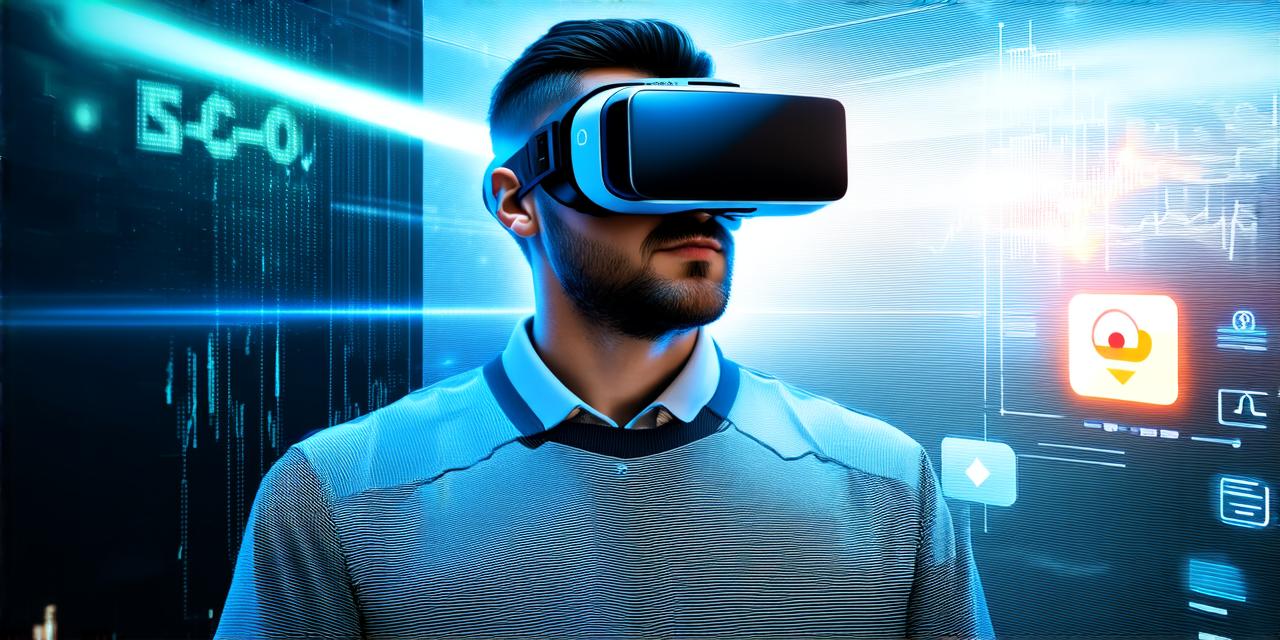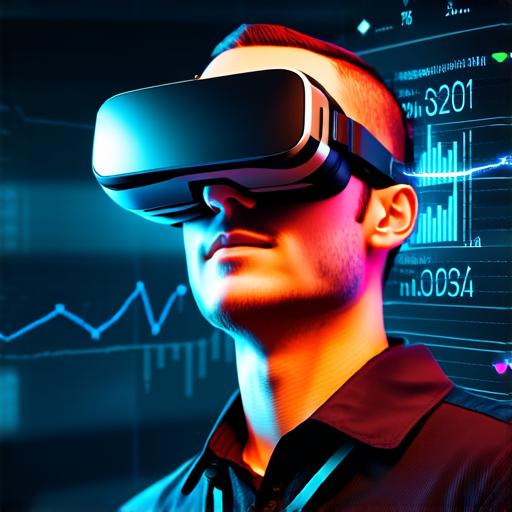
Explore the Benefits of Virtual Reality in SEO
Virtual Reality (VR) is a rapidly growing technology that has the potential to revolutionize Search Engine Optimization (SEO). VR provides an immersive experience that allows users to interact with products, services, and environments in a way that traditional media cannot. In this article, we will explore how VR can be used for SEO and provide some case studies to illustrate its effectiveness.
One of the primary benefits of VR in SEO is that it allows for a more immersive user experience.
By creating VR experiences, users can interact with your brand or product in a way that traditional media cannot. This immersion can lead to increased engagement and higher conversion rates. For example, a real estate company may use VR to showcase properties to potential buyers. The buyer can explore the property virtually and get a better sense of what it’s like to live there.
Another benefit of VR in SEO is that it allows for improved visual search results.
Visual search results are becoming increasingly popular as more users turn to visual platforms like Instagram and Pinterest for inspiration. By incorporating VR into your SEO strategy, you can improve your visual search results and attract more users to your content. For example, a fashion brand may create a virtual fitting room where users can try on clothes virtually before making a purchase. This can lead to higher engagement and increased sales.
VR can also be an effective tool for boosting brand awareness.
By creating unique VR experiences that are shareable on social media, you can reach a wider audience and increase your brand’s visibility. For example, a travel company may create a virtual tour of a popular destination to entice users to book a trip. This can lead to increased brand recognition and loyalty.
Virtual reality can also increase conversion rates by allowing users to interact with products or services in a more immersive way.
VR experiences have been shown to increase engagement and conversion rates by providing a more personalized experience for the user. For example, an automotive company may create a virtual showroom where users can explore different car models and customize their preferences. This can lead to higher engagement and increased sales.
Improving accessibility is another benefit of VR in SEO.
Virtual reality can improve accessibility by allowing individuals with disabilities to experience products or services that they may not have been able to otherwise. For example, a home improvement store may create a virtual tour of their store to allow users with mobility issues to shop from the comfort of their own homes. This can lead to increased customer satisfaction and loyalty.
Case Studies: Virtual Reality in SEO
1. IKEA: Virtual Room Planning
IKEA has been using VR technology for several years to help customers plan their furniture purchases. Their virtual room planning tool allows users to upload a photo of their room and then virtually place furniture into the space. This tool has been shown to increase engagement and conversion rates by allowing users to visualize how furniture will look in their home before making a purchase.
2. McDonald’s: Virtual Ordering Kiosks
McDonald’s has implemented virtual ordering kiosks at some of their locations, allowing customers to order food through a touch screen interface. These kiosks have been shown to improve the customer experience by reducing wait times and increasing accuracy in orders. This technology can also be used for SEO by improving the accessibility of the ordering process for individuals with disabilities.

3. The North Face: Virtual Product Customization
The North Face has created a virtual product customization tool that allows customers to design their own jackets and other clothing items. This tool has been shown to increase engagement and conversion rates by allowing users to create unique products that reflect their personal style. This technology can also be used for SEO by increasing brand loyalty and awareness.
Conclusion
Virtual Reality (VR) technology offers numerous benefits for Search Engine Optimization (SEO). VR provides an immersive experience that allows users to interact with products, services, and environments in a way that traditional media cannot. This immersion can lead to increased engagement and higher conversion rates. By incorporating VR into your SEO strategy, you can attract more users to your content and increase engagement and sales. As VR technology continues to advance, it’s likely that we will see even more creative ways in which it can be used for SEO purposes. With the increasing popularity of virtual reality, it is crucial for businesses to consider how they can incorporate this technology into their marketing efforts. By leveraging VR in SEO, businesses can create immersive experiences that engage and delight customers while driving growth and revenue.